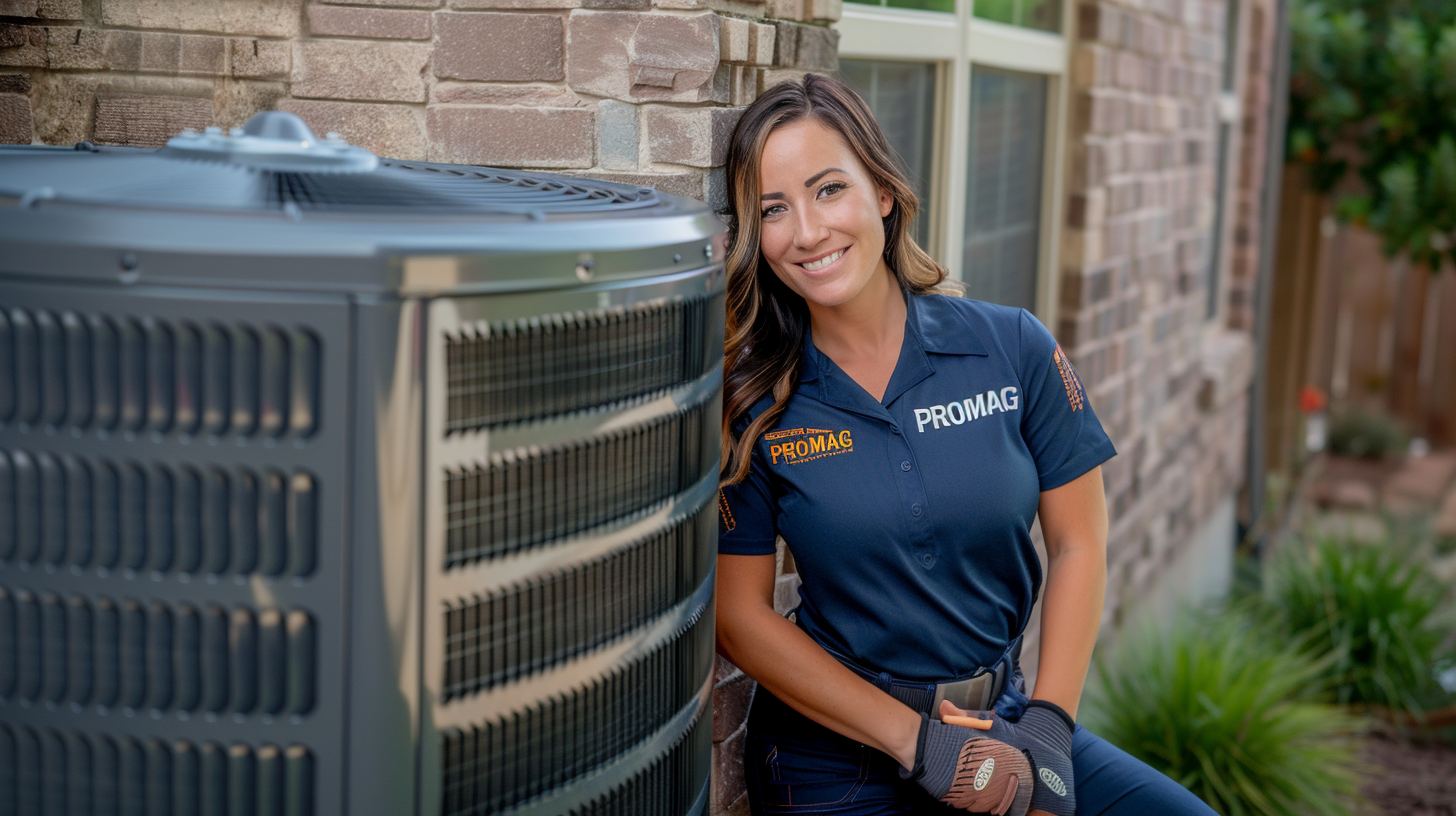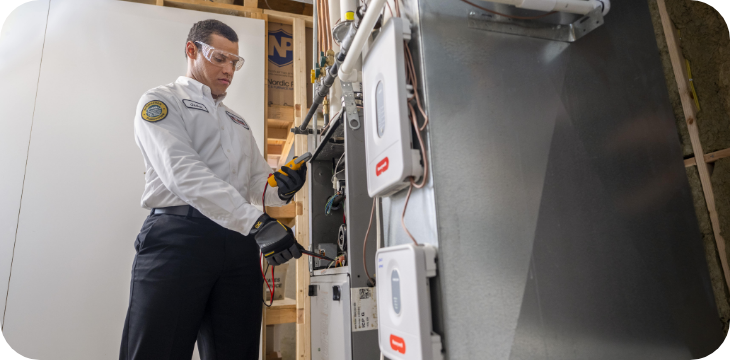Affordable System Upgrades with DMAKS HVAC Expertise.
Affordable System Upgrades with DMAKS HVAC Expertise.
Blog Article
How to Choose the Right Heating And Cooling System for Your Requirements
Picking the proper Cooling and heating system is a critical decision that calls for cautious factor to consider of various variables. The myriad of system types readily available can complicate this process, leading one to ask yourself which course ultimately leads to ideal comfort and performance.
Examine Your Home Size
Evaluating your home size is an essential primary step in selecting the proper a/c system. The size of your home directly influences the heating & cooling ability needed for reliable environment control. A HVAC system that is too tiny will certainly battle to maintain comfy temperatures, resulting in increased power consumption and use on the unit. Alternatively, an extra-large system can result in brief biking, inadequate humidity control, and inefficient procedure.
To properly analyze your home dimension, gauge the square footage of each room, thinking about aspects such as ceiling height and the design. In addition, consider the insulation high quality and the variety of windows, as these aspects impact thermal efficiency. Residences with open layout might call for different system setups compared to those with several divided rooms.
Using the Manual J tons estimation technique can provide a more accurate quote of your HVAC needs. This method make up different factors, consisting of regional environment, solar gain, and tenancy patterns. By carefully assessing these aspects, you can make sure that your selected HVAC system is suitably sized, resulting in improved convenience, power efficiency, and long life of the equipment.
Determine Your Spending Plan
Determining your spending plan is a critical action in the a/c system selection procedure, as it establishes the specifications for your options - DMAKS HVAC. A cooling and heating system is a considerable investment, and recognizing your monetary restrictions will certainly help limit options that fit within your ways
Begin by evaluating not just the preliminary purchase price however also installation costs, which can vary significantly depending upon the complexity of the task. Think about recurring expenses such as upkeep, repairs, and power consumption. A system may show up affordable originally however can lead to greater prices in time if it is much less reliable.
It is advisable to assign a backup fund for unexpected costs that might arise during setup or preliminary system changes (DMAKS HVAC). Additionally, explore financing choices or discounts that might be available, as these can relieve the problem of ahead of time costs
Inevitably, having a clear budget plan allows you to involve with a/c experts better, guaranteeing you receive customized guidance that straightens with your monetary goals and home demands. By being persistent about your spending plan, you can make educated decisions that enhance comfort without jeopardizing economic stability.
Evaluate Power Efficiency
Energy efficiency plays a vital function in the overall efficiency and cost-effectiveness of your HVAC system. Look for systems with a high Seasonal Energy Efficiency Ratio (SEER) for cooling down and a high Yearly Fuel Usage Performance (AFUE) rating for heating.
In addition, think about the Power Celebrity certification, which indicates that the check my source system fulfills stringent efficiency guidelines established by the Environmental Protection Agency. Buying an Energy Star-rated a/c system can bring about substantial financial savings over time, specifically in locations with severe temperature level try here variations.
An additional variable to review is the system's dimension and ability. An oversized or small device can bring about inefficiency and increased power prices. DMAKS HVAC. Correct sizing, usually determined via a Hand-operated J tons computation, makes sure that the system operates at optimal performance

Take Into Consideration Climate and Environment
When selecting a HVAC system, it is important to think about the regional environment and ecological conditions, as these aspects substantially affect the system's efficiency and effectiveness. Different regions experience varying temperature extremes, humidity levels, and seasonal modifications, all of which impact heating and cooling down needs.

Additionally, local environmental aspects, such as air quality and prospective irritants, should notify your selection. Systems geared up with innovative filtration innovations can aid reduce toxins and provide cleaner air. In addition, consider the energy sources offered in your location-- some heating and cooling systems are extra efficient when powered by gas or renewable power sources.
Inevitably, aligning your a/c system option with your regional climate and ecological factors to consider will result in boosted convenience, boosted efficiency, published here and reduced power prices.
Explore System Kind and Attributes
As property owners seek to enhance comfort and efficiency, checking out the different kinds of heating and cooling systems and their special functions ends up being necessary. The key sorts of a/c systems consist of main air conditioning, heatpump, ductless mini-split systems, and heating systems. Each system provides distinct advantages tailored to various demands and choices.
Air conditioning systems give consistent air conditioning throughout a home, making them suitable for bigger areas. Heatpump function as both heating and cooling solutions, utilizing power to move warmth, which can lead to lower energy costs. Ductless mini-split systems are becoming increasingly preferred due to their flexibility and convenience of installation, allowing homeowners to regulate the temperature level in individual rooms without comprehensive ductwork.

Conclusion
Finally, picking the ideal a/c system necessitates mindful consideration of numerous elements, consisting of home size, budget plan restraints, power effectiveness, regional environment, and offered system kinds. A complete analysis of these elements ensures ideal comfort and cost-effectiveness. By adhering to a structured approach, house owners can make informed decisions that straighten with their specific needs and preferences, ultimately leading to improved interior air quality and power cost savings.
Report this page